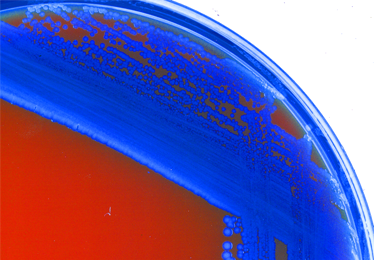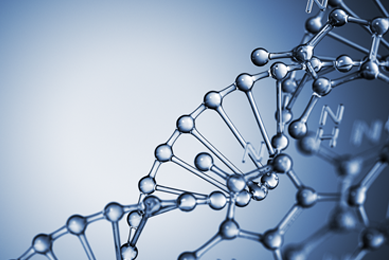Why it’s important
Bacteria are essential for environmental and human health, playing vital roles in nutrient cycling, decomposition, drug discovery, digestion, vitamin production, and so much more. Numerous prokaryotic species are also detrimental to our well-being and can result in serious illnesses that could be potentially life threatening. Understanding these organisms and identifying new species can be of great benefit toward identifying novel industrial applications, ensuring correct disease diagnoses, and developing new therapeutic interventions.
When identifying a novel bacterial species, having a point of reference for identification is of tremendous value. Type strains provide this reference as they are made up of living cultures that were descended from a strain designated as the nomenclatural type. These strains are often—but not always—the first strain of a species to be identified, and their phenotypic and other physiological properties are typically well defined. Because they provide a fixed reference point, type strains play a critical role in defining bacterial phylogeny and can help facilitate identifying new species and evaluating the genomic differences between strains within a species. A type strain can also act as a benchmark when choosing the right strains for a particular research project.
How we can help
When new type strains are identified, the International Committee on Systematics of Prokaryotes (ICSP) and International Journal of Systematic and Evolutionary Microbiology (IJSEM) have stipulated that they must be deposited in two or more public culture collections in different countries. As a recognized culture collection in the United States and a member of the World Federation for Culture Collections, ATCC accepts proposed type strains through our Type Strain Deposit service and makes those essential cultures available to the scientific community.
Our growing collection of type strains currently includes over 4,900 bacterial strains. Approximately 700 of those strains have whole-genome sequencing data on the ATCC Genome Portal. We are working to offer genome sequences for all type strains. We also offer nucleic acid preparations for many of these type strains as well. Explore our growing collection of type strains to see how we can support your research.
Dig deeper into our type strain resources

Type Strains
Because microbial strains within a species can show a wide range of genetic differences, having a point of reference for microbial identification is of tremendous value to life science research. Learn how type strains provide this reference.
More
Type Strain Deposit
Researchers who believe they’ve discovered a new type strain can request it be accepted into the ATCC Type Strain Deposit to fulfill publication requirements.
More Poster
Poster
Phylogenomic Comparison of Bacillus cereus Group Strains
This is a poster presented at ASM Microbe 2019 that details the phylogenomic comparison of Bacillus cereus group strains.
MoreShahin Ali, PhD
Senior Scientist, Collections, ATCC
Dr. Ali is a Senior Scientist at ATCC with over 13 years of experience in the field of fungal biology and plant-pathogen interactions. Before joining ATCC, Dr. Ali worked for the USDA-ARS at Beltsville Agricultural Research Center, Maryland. He obtained his PhD from University College Dublin, Ireland.
Cara Wilder, PhD, ELS
Senior Scientific Writer, ATCC
Dr. Wilder is a Senior Scientific Writer at ATCC. She has a PhD in Microbiology with background experience working with several pathogenic bacterial species in both in vitro and in vivo environments. Dr. Wilder is the author of numerous publications on varying topics of scientific relevance, including quality control, microbial contamination, assay development, proficiency testing, and multidrug resistance.